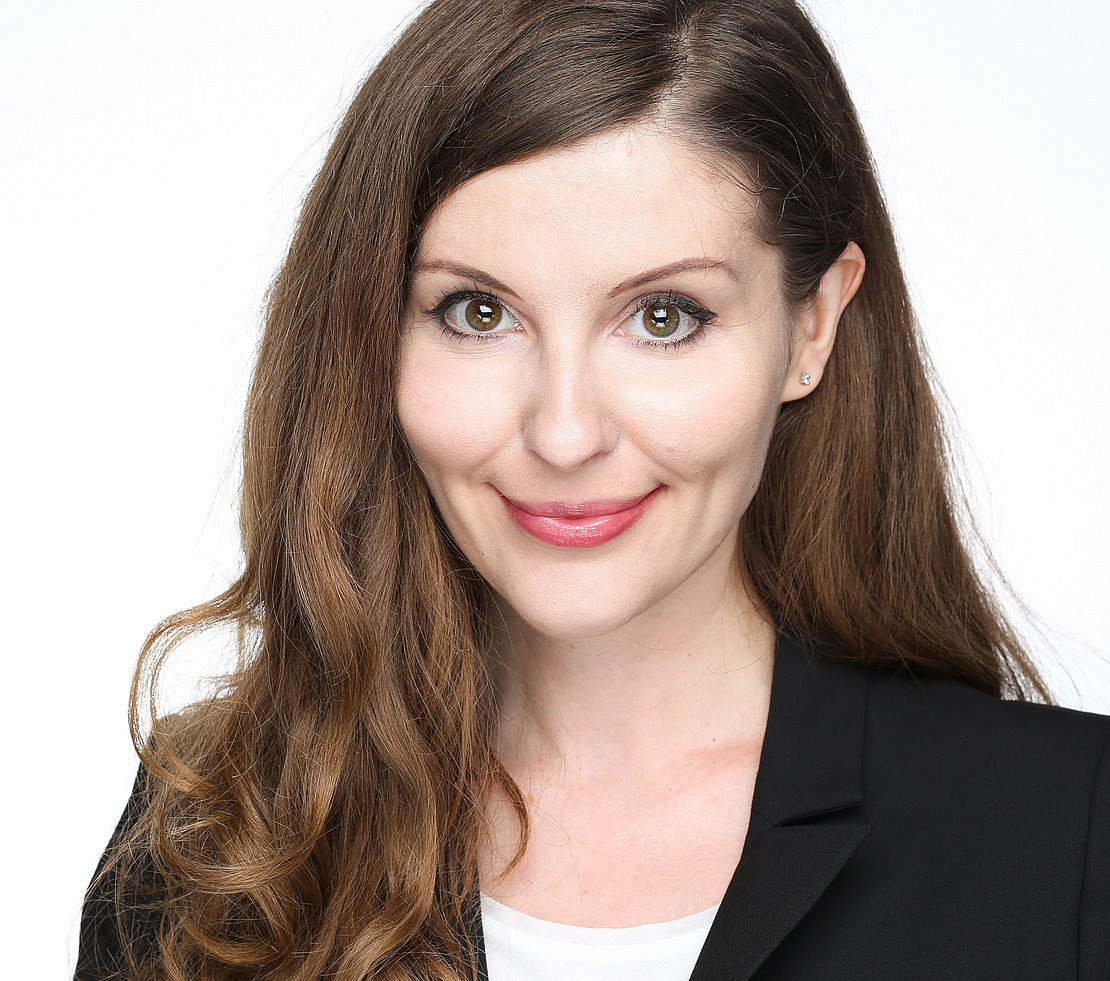This page contains automatically translated content.
Bridges between Kassel and Berlin
 Image: Sonja Rode
Image: Sonja Rode"Empirical work, project management and discipline. These three skills from my studies are also incredibly important in my job," says Cezara Missing looking back. From the University of Kassel to the political world in Berlin - that's the path she took. Missing studied German as a foreign language at the University of Kassel and completed her doctorate in this field in 2016. Since then, she has been focusing on something completely different: the energy industry. She has already represented this topic as a speaker for various companies, an association and in the German Bundestag. As Deputy Director of Public Affairs at the Viessmann Group, she now continues to work at the interface between politics, business and society. "With energy issues, you are always at the cutting edge, always part of the debate," she says enthusiastically. That's exactly what's exciting about her job: "You're asked and you have to get involved." This is also currently the case in the debate about the changes to the federal Building Energy Act. "I want to bring objectivity to the debate, show what companies are already doing to achieve the climate targets and what else is feasible."
Her professional networks - not only from Berlin, but also from Kassel, which she already established during her studies - are a great support. "Many students underestimate networking," she believes, "but it's one of the most important tips I would give students." She sees the interdisciplinary orientation of the University of Kassel and its networking in the region as particular advantages. Many organizations and local companies are ideal for jobs that not only finance your studies, but also provide valuable encounters for your future career.
"Kassel was an absolute novelty at the time. That appealed to me," Missing recalls. "It was a surprise that I got involved with." Born in Romania, she initially came to North Hesse for just one semester on a scholarship. The whole package convinced her to come back: the interdisciplinary and open culture at the university, the cultural offerings of the city, the museum landscape, the documenta and the geographical location in the middle of Germany with a varied landscape. In her first Master's semester, she financed her own living expenses with a part-time job, and later received a scholarship from the Kassel Press Club. The associated internships at newspapers and radio brought her even closer to the region - and an even larger network. Now she was increasingly aware of North Hesse as a business location, with companies from the energy, mobility and logistics sectors. Through one of these companies, she made contacts in political Berlin and only a short time later began working as an advisor in the Bundestag. She completed her doctorate with Professor Karin Aguado Padilla at the same time. "I kept coming back to Kassel with a new perspective from Berlin and vice versa. That really enriched my doctorate and my career," she reports. "Against this backdrop, defending my doctoral thesis was a particularly wonderful moment in my life that I really enjoyed." Even now, her work for Viessmann still takes her to northern Hesse from time to time. "It's still a bit of home here," she enthuses.
In May 2023, many of her contacts from her academic and professional career literally came together in just one day: at a parliamentary evening in the Hessian state parliament, Missing spoke about the importance of regional involvement in the energy transition. "North Hesse is a pioneer in many respects. The heating transition is already being implemented here." In addition to companies from the renewable energy sector and municipal institutions, the University of Kassel, with its focus on sustainability, is also a strong driver in the sustainable transformation of the economy and society in North Hesse.
This article appeared in the university magazine publik 2023/3. Text: Vanessa Laspe